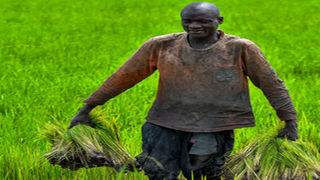
NARO scores big in maize and rice value addition through research
What you need to know:
The Ministry of Agriculture, Animal Industry and Fisheries (MAAIF) made a comprehensive strategy elaborating collaborative linkages between the various actors on issues affecting the agricultural sector in Uganda.
Production, multiplication, certification and distribution of seed and stocking material was highlighted as one of the biggest challenges affecting the rapid growth of the sector.
To address this challenge, the ministry resolved to have monopoly and control over seed and stocking materials development, production, and importation.
One of the government bodies selected to be in charge of developing and producing all foundation seed where needed, and releasing it to the licensed private sector for multiplication and distribution is the National Agricultural Research Organisation (NARO).
This would enable Government to be in charge and responsible for safety and quality assurance across the value chains.
The government also created a commercial arm of NARO (NARO Holdings Ltd) and is in the process of incorporating a private company, as a vehicle of intervention for purposes of availing seed and disseminating other research outputs, and address affordability issues.
To enhance the capacity of research in maize and rice, NARO was supported by the Agriculture Value Chain Development Project (AVCP) to support production and multiplication of early generation seed which would in turn result into production of high quality seed and therefore ensuring quality declared seed on the market to be accessed by all farmers.
MAAIF through NARO has in the last three years reached great milestones in improving the quality of foundation seed for maize and rice. For instance, at least two maize and six rice-improved breeds were released between 2021 and 2023 by NARO.
According to experts at NARO, the success stories in the seed value chain have been largely due to unwavering research in the seed sector and additional funding that has been injected over time.
The Daily monitor caught up with the breeding experts from NARO who shared with us the strides so far in maize and rice research as the ministry implements the Agricultural Value Chain Development Strategy.
Maize value chain
NARO has ably ensured the production of high quality and enough quantities of early-generation seed.
The body has also regulated breeders of foundation seed or certified seed for the commercial production of grain.
Dr Charles Lwanga Kasozi, a maize breeder at NARO, Namulonge says some of the progress and achievements include the release of two new maize varieties.
These are not only high-yielding but also resilient to several production constraints such as drought, pest and disease, and striga.
The new maize varieties have enabled farmers to produce enough grain for consumption and sale.
Progress on the maize value chain
According to Dr Kasozi, NARO submitted five varieties to National Seed Certification Services (NSCS) for an assessment of the durability, uniformity and stability in 2022.
After the NSCS assessment, the MAAIF team did similar assessments and out of the three varieties, two were selected and later released in July 2023.
“The body, after immense input, released two maize hybrids. These are; NARO MAIZE 63 VITA, which is rich in Vitamin A and NARO MAIZE 64 STR, which is tolerant to striga weed,” he says.
He adds that the government, through AVCP supported the early stages of research while AVCP facilitated the later stages of evaluation and ultimate release of both maize varieties.
Attributes of the released varieties
NARO MAIZE 63 VITA
The variety is rich in vitamin A and is targeting Vitamin A-deficient communities.
The Vitamin A levels for NARO MAIZE 63 VITA are around 12 parts per million/gram, thus consuming reasonable quantities of this hybrid’s flour, can give one the required Vitamin A levels in the body.
“Uganda still has a challenge of Vitamin A deficiency with a prevalence of 25 percent. This is common among mothers both breastfeeding and pregnant as well as children of five years and below. Therefore, NARO MAIZE 63 VITA is a great remedy,” he says.
The seed’s yield is seven to eight tons per hectare and it is also tolerant to random stress. That means that it can ably perform better than other varieties even in tough conditions such as drought.
NARO MAIZE 63 STR
This variety is resistant to striga and can also outperform other varieties under random drought conditions. Its yield ranges from about 6.5 to seven tons per hectare under striga-free conditions.
However, when infested with the weed, its yield ranges from 3.5 to four tons per hectare while other varieties can hardly yield more than 500 kgs per hectare, under striga conditions.
The maturity period for both varieties is around 120 days.
Advertorial


